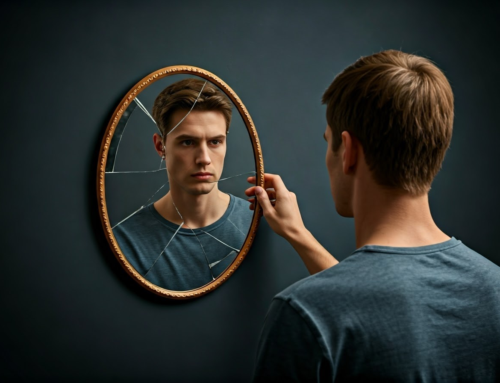Understanding Self-Esteem and the Brain | 4 Steps to Improve your Self-Esteem | Counselor Jada Jackson LMHC
Dallas Self Esteem Expert Jada Jackson gives insight into understanding self-esteem and the brain as well as 4 steps to improve your self esteem. We all have those days when we feel like we just can’t rise to the challenge, or when we may feel that we aren’t good enough. It’s normal to feel down on ourselves sometimes. But why is that? This matter of mental health has to do with self-esteem. Self-esteem is defined as “confidence in one’s abilities or worth.” There are various ways self-esteem can be impacted, and several things one can do to maintain a positive self-image.
To better understand this important aspect of life, self-esteem must be examined from a neurological perspective.

Understanding how the brain works in regards to this topic will help improve self-esteem when necessary. The way you think about yourself is developed the same way as learning how to ride a bike. The more practice with the bike, the stronger rider you are. Eventually you can ride without thinking about it. A strong pathway in the brain has been created.
When we are children, our thoughts about ourselves are created by the messages from those who we believe are important, such as family members, schoolmates, and friends. For example, if you were constantly picked on in school, this most likely led to the formation of low self-esteem and a negative self-image. Now as an adult, your thoughts repeatedly revert back to the messages engrained in your mind. If you went to a party, your self-esteem and pattern of negative thinking could kick in and lead to social anxiety and the belief that no one likes you; the reality is that the others at the party have not even met you yet!
The default to pessimism is a dominant thought pattern. It is automatic, just like riding a bike after lots of practice. Circumstances trigger thoughts that, even unconsciously, cause the reactions— based on your established self-esteem. The good news is that these thought processes can be changed and self-esteem can certainly be improved! Here are a few solutions to promoting a healthier self-image, based on cognitive behavioral therapy.
- Be aware of what you are thinking and feeling.
Once you are aware, you can practice new, positive, thought/behavior patterns.
- Identify difficult situations that may decrease your self-esteem ahead of time. Anticipate the negative and inaccurate thinking and challenge initial thoughts that revert to a negative concept of yourself. I call this Mapping the Minefield. Beware of these situations and develop a strategy to address it when it emerges.
- Focus on the positive! Remind yourself of all the good things about your life, all the things that have gone your way in the past week, and the skills and talents you have. You truly are more amazing than you may realize. Focusing on the positive will allow you to develop healthier patterns of thinking as you learn to retrain your brain.
- Re-label thoughts that upset you. Instead of jumping to the conclusion that you must react negatively and beat yourself up, step back and ask yourself, “What can I do to make this situation less stressful on myself?” It is important to replace negative thoughts with positive thoughts.

If you or someone you know suffers from low self-esteem or negative self-concept please contact a a therapist or mental health counselor for self-esteem counseling.
NOTE: Freely redistribute this resource, electronically or in print, provided you leave the authors, name, credentials, and contact information below intact and include a link to this article.
AUTHOR: Jada Jackson, MS, LMHC – Communicator, Coach & Licensed Mental Health Counselor provides Dallas teen self-esteem counseling. If you’d like to speak with Jada about your struggles with self-esteem you can reach her at: (469) 757-5215
AUTHOR: Emily Simpson (Intern)
References:
http://www.dartmouth.edu/~opa/statements/brainselfesteem061614.html
http://www.mayoclinic.org/healthy-living/adult-health/in-depth/self-esteem/art-20045374
Filed in: Adults, Anxiety, Blog, Dallas Texas Counseling, Depression, Jada Jackson, Self Esteem, Social Skills, Teens, Updates, Womens Issues
Share This Story, Choose Your Platform!
Total Life Counseling Center consists of Licensed Counselors, masters level therapists, Español counselors, Licensed Mental Health Counselors, business coaches, and image enhancement coaches who provide counseling for emotional, mental, physical and spiritual care including marriage, individual, family, substance abuse and more. TLC’s family, trauma and marriage experts have been interviewed on National and Local TV/Radio over 200 times for their expert advice on Fox News, OWN, WETV, ABC’s Medical Minute and more. Our skilled counselors are relational, approachable and specialists providing therapy services in the Central Florida area including: Orlando, Winter Park, MetroWest, Windermere, Dr. Phillips, East Orlando, Lake Mary, and Clermont, Boca Raton Florida, and Dallas, TX.







